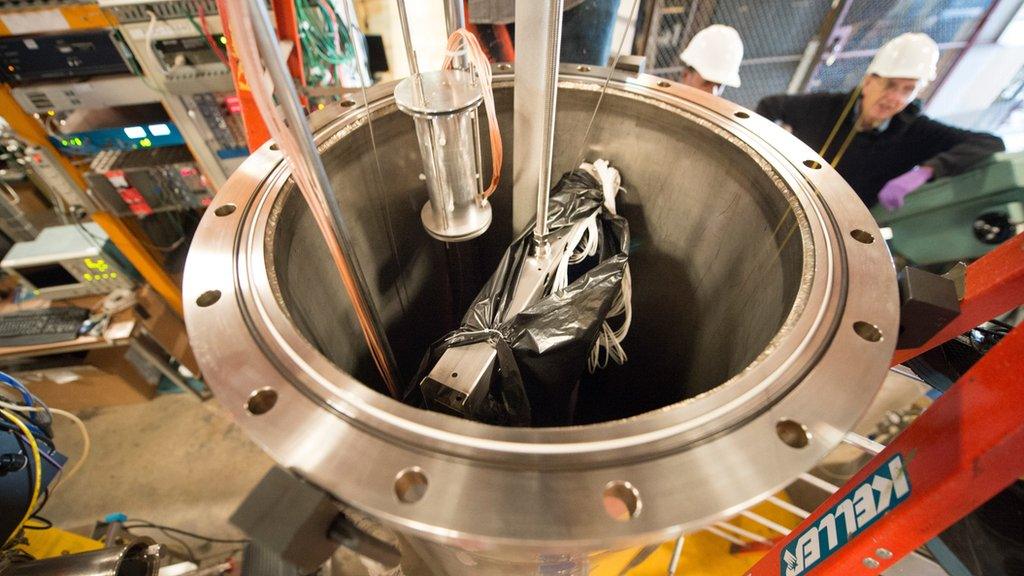UK strikes research deal with US in run-up to Brexit
- Published
- comments
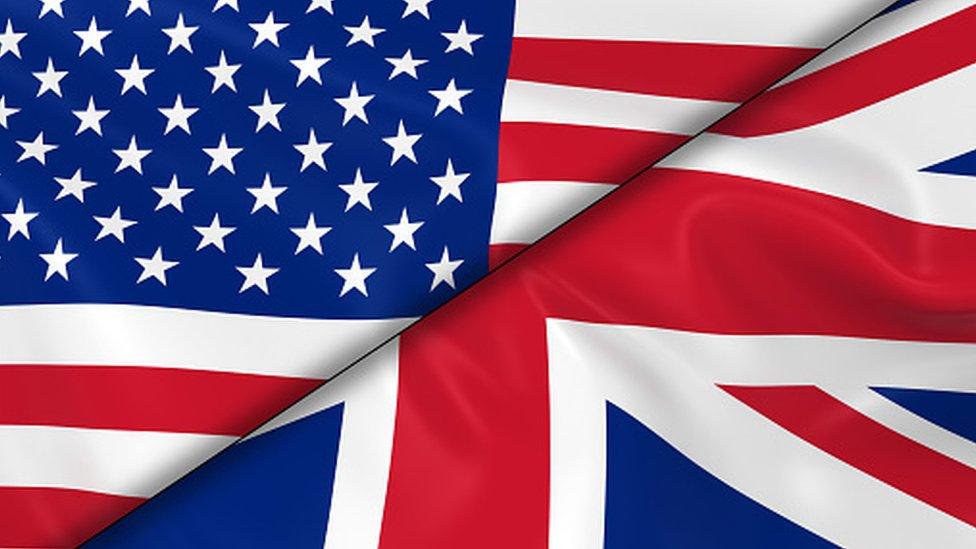
The UK and US have reached a deal to develop a special relationship for science.
An agreement between the two countries aims to make it easier for researchers to travel, collaborate and share facilities.
US science bodies are said to be "eager" to take advantage of research opportunities lost because of Brexit.
The deal is part of government efforts to develop research collaborations outside the EU.
BBC News revealed earlier this year when the deal was being negotiated that the aim was to develop a legal framework to allow a freer flow of people, research grants and tariff-free exchange of equipment between the two countries.
Possible strategic areas of collaboration include:
synthetic biology
information technology
GM research
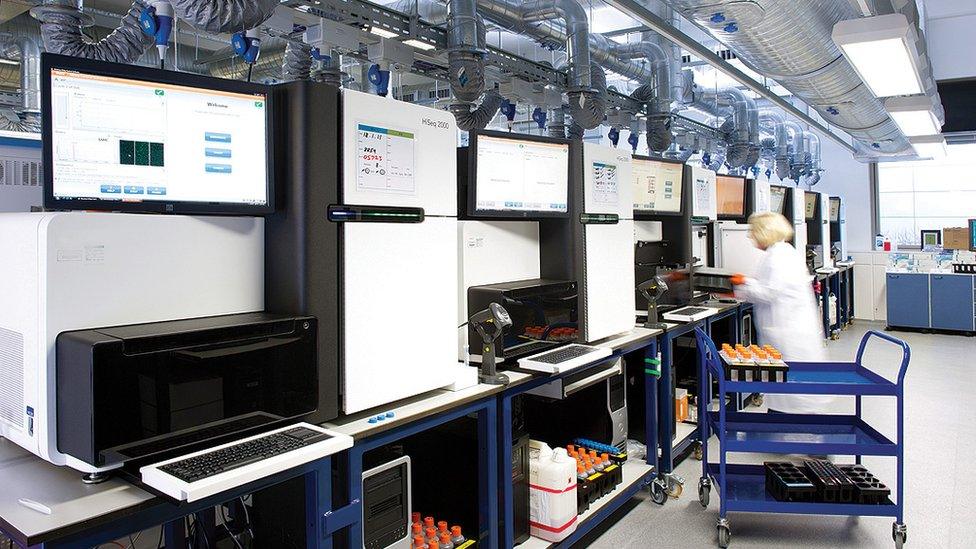
America and Britain were key partners on the project to decode the human genome
The agreement, signed by the Science Minister Jo Johnson and his US counterparts, states that national laws will "seek to facilitate" freer movement of people and scientific equipment.
Speaking in Washington, Mr Johnson said that the deal would help to ensure that the UK would maintain its global lead in many areas of research.
"Our continued collaboration with the US on science and innovation is beneficial to both of our nations, and through this agreement we are sharing expertise to enhance our understanding of many important topics that have the potential to be world changing," the minister added.
The impetus for the deal came following the UK referendum result to leave the European Union. British universities, in collaboration with small businesses, receive £850m in research grants each year from membership of the EU's research programmes. EU membership also makes it easy to form collaborations.
There are fears that much of the funding and collaborative work with EU scientists will be in jeopardy once the UK leaves the EU, despite recent assurances from the Brexit Secretary, David Davis, that his aim is to foster even closer scientific relationships with the EU.
Prof Venki Ramakrishnan, president of the Royal Society, welcomed the deal with the US but remains concerned that Mr Davis' aspiration to have closer collaboration with the EU lacks any detail on how to achieve his aim.
"This agreement sends a welcome message that UK science remains outward looking. International research collaboration allows the rapid exchange of new ideas and expertise and it also allows us to address problems that no one country can on its own. It is an essential part of modern science," he said.
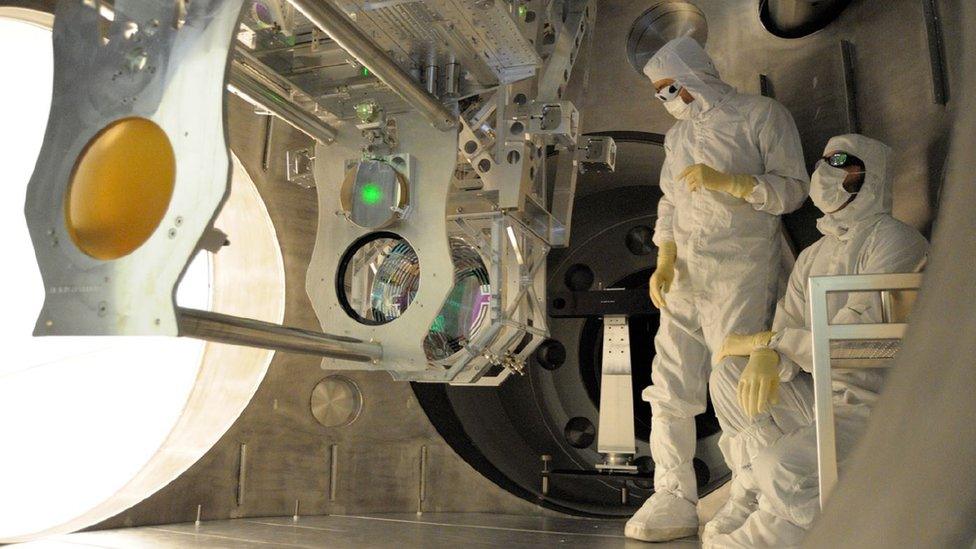
A wider partnership could give UK researchers even more access to US facilities
British researchers are being encouraged to foster links with other nations. While most if not all research leaders are still dismayed by the referendum result - some are beginning to see advantages for greater collaboration with the US.
For example, there is scope for greater freedom in research in synthetic biology and information technology because biotechnology and privacy regulation is less restrictive outside the EU.
For their part, US science bodies see Brexit as an opportunity for them. US research leaders are anxious that American research groups fill any shortfall left by the UK's departure from the EU, rather than their rivals in India and China.
Mr Johnson announced that the government had pledged £65m to participate in a US-based and led international project to learn more about sub-atomic particles called neutrinos. He said he hoped it would be the first of many more UK research collaborations with the US.
The BBC's Pallab Ghosh looks at how the neutrino beam would be fired 800 miles underground
The UK-led Dune project involves 150 scientists from 14 British universities and two laboratories run by the UK's Science and Technologies Facilities Council participating in a US-based effort involving 1,000 scientists from 31 countries.
The UK was likely to participate in Dune before the referendum result, but the project received greater support from ministers subsequently because it fitted well with the government's narrative to reassure the British scientific community that Brexit would free them to take up new opportunities outside the EU.
Echoing that message Sir Mark Walport, currently the government's chief scientific adviser and soon to be chief executive of UK Research and Innovation, the body that will oversee funding of civil government research, said that the agreement sent a "clear signal that UK researchers are outward looking and ready to work with the best talent wherever that may be".
"UK Research and Innovation is looking forward to extending partnerships in science and innovation around the world," he added.
Follow Pallab on Twitter, external
- Published17 February 2017

- Published6 September 2017
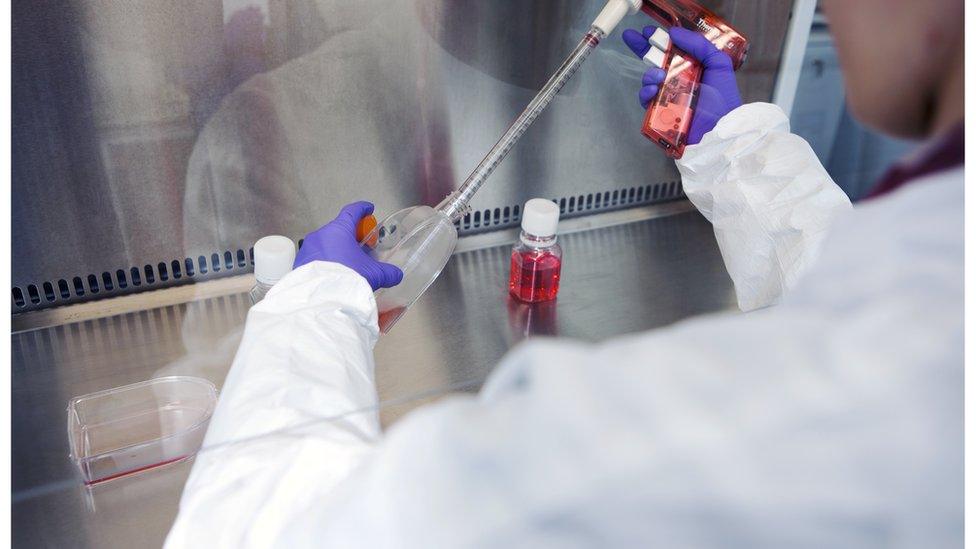
- Published14 February 2014
